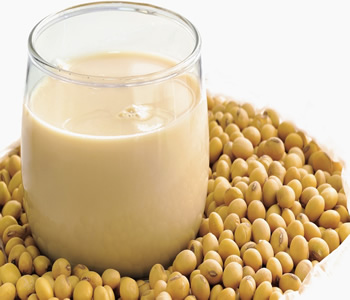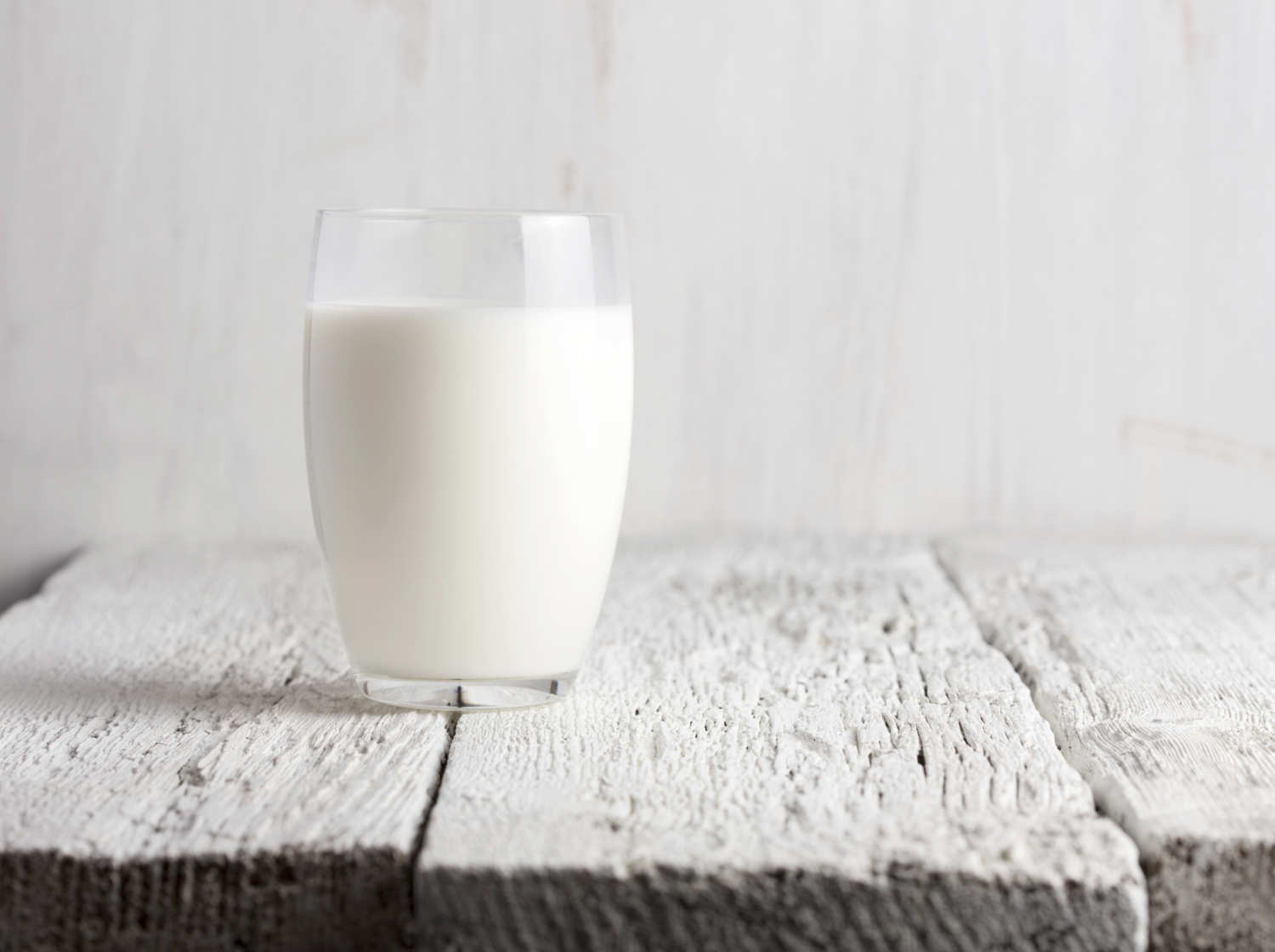There has been a lot of discussion over the topic of soy milk vs. skim milk. Which is better for you? They each have their own benefits, along with their own set of drawbacks. How they will affect you depends quite a bit on your health condition and nutritional needs, as well as your dietary restriction.
Knowing about Soy Milk and Skim Milk
1. What Is Soy Milk?
Originated in China, soy milk is actually an extract taken from soybeans that have been soaked and grinded with water. After the liquid is drained, it becomes a stable mixture of water, oils and protein which is known as soy milk. People can also make their own version at home. The original soy milk has a beany flavor, but it can be removed by appropriate processing. In the market, there are several varieties available, some of which have been flavored with chocolate or vanilla. If you are lactose intolerant, soy milk may be a good option for you. Some studies suggest it can even help prevent osteoporosis, cancer and heart disease.
2. What Is Skim Milk?
Skim milk is derived from cow milk. Originally the processing of making it involved letting the milk settle and then having the fat skimmed from the top, leaving you with skim milk. Today there are special machines designed to separate the fat and then drain it from the milk. In either case, the resulting product ends up being fat free and full of proteins. Having less than 0.5 percent of fat, skim milk is labeled fat-free. One cup of skim milk has almost 60 calories less than whole milk.
Soy Milk vs. Skim Milk
By comparing soy milk vs. skim milk, you can make your own decision on which one might be better for you.
1. Nutrition Comparison
These milks are similar in several aspects. Both of them contain vitamins, riboflavin, folate, protein and calcium, which lead to better bone and muscle health. Because soy milk and skim milk are low in glycemic loads, drinking them will not make your sugar levels rise. This helps maintain good metabolic function and proper blood sugar levels. Both milks are often fortified with other vitamins and nutrients during processing.
Since soy milk is made from soybeans, so it is naturally sweet. You may choose it over skim milk if you favor sweeter foods. It is also a good option if you do not like cow’s milk and need to add dairy to your diet.
Here is the form comparing the nutrients in soy milk and skim milk.
Soy Milk vs. Skim Milk Calorie Amount per Serving Comparison
|
Comparison |
Soy Milk |
Skim Milk |
|
Calories |
90 |
90 |
|
Total Fat |
3 g |
0g |
|
Saturated Fat |
0 g |
0g |
|
Polyunsaturated Fat |
2g |
0g |
|
Monounsaturated Fat |
1g |
0g |
|
Cholesterol |
0 mg |
5mg |
|
Sodium |
100mg |
130mg |
|
Potassium |
300mg |
430mg |
|
Total Carbohydrate |
8g |
13g |
|
Dietary Fiber |
1g |
0g |
|
Sugars |
6g |
13g |
|
Protein |
6g |
9g |
2. More Benefits of Soy Milk vs. Skim Milk
Soy Milk
 It is good for people who suffer lactose intolerance, because it is lactose-free and easy to digest.
It is good for people who suffer lactose intolerance, because it is lactose-free and easy to digest.- It is cholesterol free, which makes it ideal for people who suffer heart illness.
- It is a good choice for vegetarians because it is extracted from plants and has no animal product in its ingredients. For a vegan diet, it is a good substitute for milk because it can also provide enough calcium and protein.
- It has a high level of omega-3 fatty acids, which are the good unsaturated fats your body needs. Omega-3 helps with brain development in young children, and it also assists in lowering cholesterol.
Skim Milk
 It decreases your risk for developing osteoporosis because it is full of whey protein. Researchers have found evidence that whey protein can also improve cholesterol and blood sugar levels, lower the risks of obesity and high blood pressure, and help sustain lean muscle mass.
It decreases your risk for developing osteoporosis because it is full of whey protein. Researchers have found evidence that whey protein can also improve cholesterol and blood sugar levels, lower the risks of obesity and high blood pressure, and help sustain lean muscle mass.- It only contains less than 0.5 percent of fat. Since it is low in fat, it is also low in calories, which helps with weight loss efforts.
3. Side Effects of Soy Milk vs. Skim Milk
Soy Milk
- It may cause flatulence in some people because it contains an enzyme that interferes with protein digestion. In this condition, indigestion and bloating may happen. After your body processes soy, your gastrointestinal track will be coated with a mucus-like substance, which may lead to irritable bowel syndrome and colds.
- It may cause the soy allergy, especially if you have been diagnosed sensitive to soy. If this is the case, you should avoid drinking it because it can cause serious respiratory, gastrointestinal or skin reactions. If this happens, seek medical help right away. Soy allergies occur when you have an immune system malfunction. This means your body is identifying the soy protein as an unsafe substance. It then creates a histamine overload to protect yourself, which causes inflammation throughout your body.
- It may be bad for infants because the child may be allergic to it. If a baby is allergic to cow’s milk, soy milk may not be a better option. Chances that an infant will be allergic to both are great. Soy milk is typically only recommended for children with lactose intolerance but not with milk allergy.
- It negatively influences thyroid function because it depletes your body of iodine. If you have an underactive thyroid or do not consume enough iodine, drinking soy milk may increase your chance of developing hypothyroidism. This will cause thyroid dysfunction and affect your whole body.
- It contains phytic acid, which can prevent your body from absorbing iron, calcium, zinc, magnesium and other important minerals. When you don’t get enough of these nutrients, you may suffer from rapid heartbeat, hyperventilation, fatigue, high blood pressure and anemia.
Skim Milk
- It provides little nutritional value compared to whole milk because most of the nutrients are concentrated in its fat. Vitamins A, D, E and K are fat-soluble, so you won’t be able to absorb them into your system through skim milk. Besides, because of the processing method, it does not contain any beneficial probiotics or enzymes.
- It may be made by powdered milk. Often manufacturers will add powdered milk solids to make the skim milk look and taste more like the real thing. Powder milk contains oxidized cholesterol, which has been linked to artery diseases.
- It has twice the amount of sugar as full fat cream. Although there are little fat in skim milk, the sugar it contains may also have bad effects on your diet.
- It may lead to blood sugar issues because people will make up for fat by using more sugar. Fats can slow down the release of sugar into your body, therefore skim milk consumption can raise your risk of hypoglycemia and diabetes.
